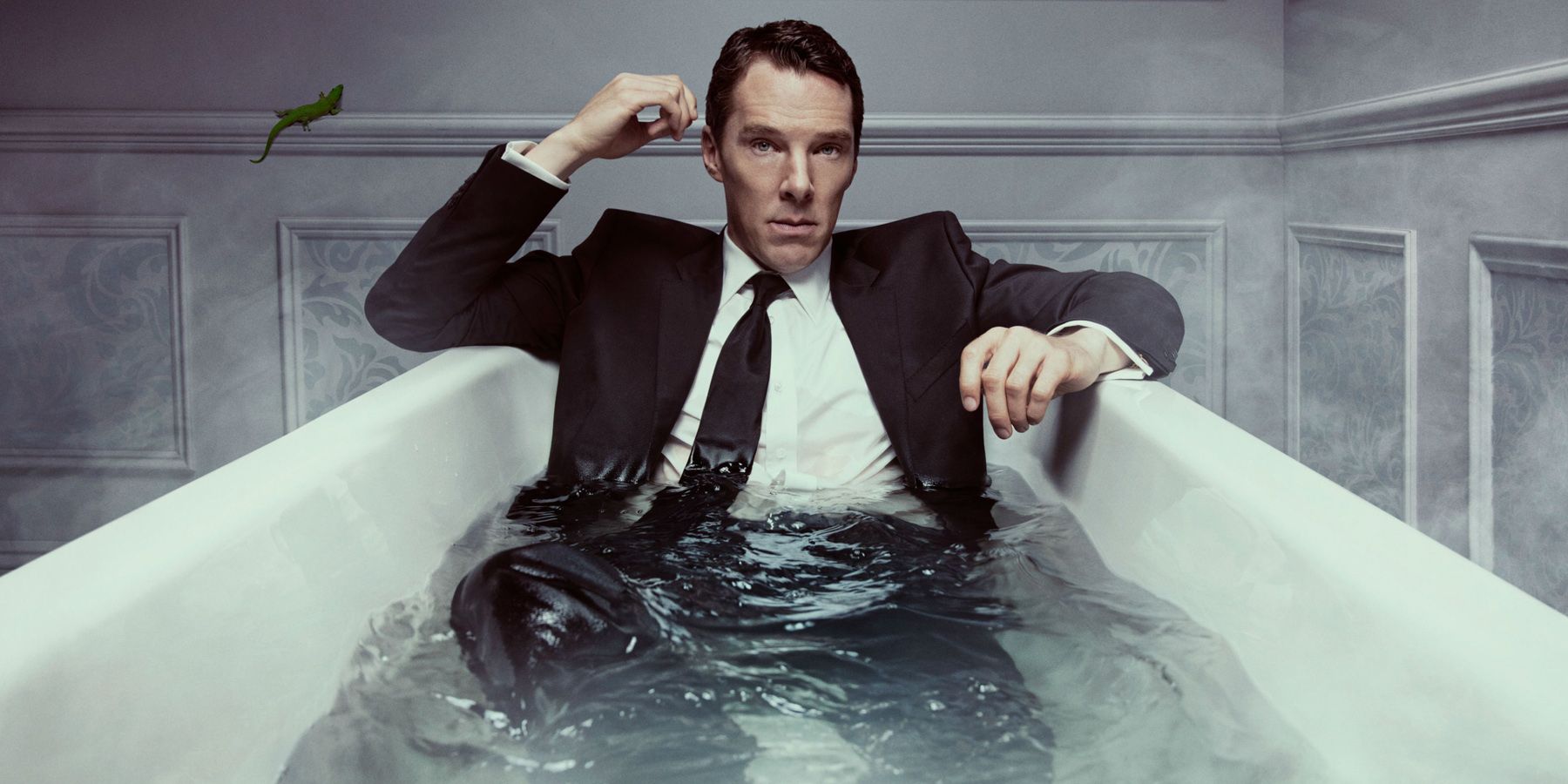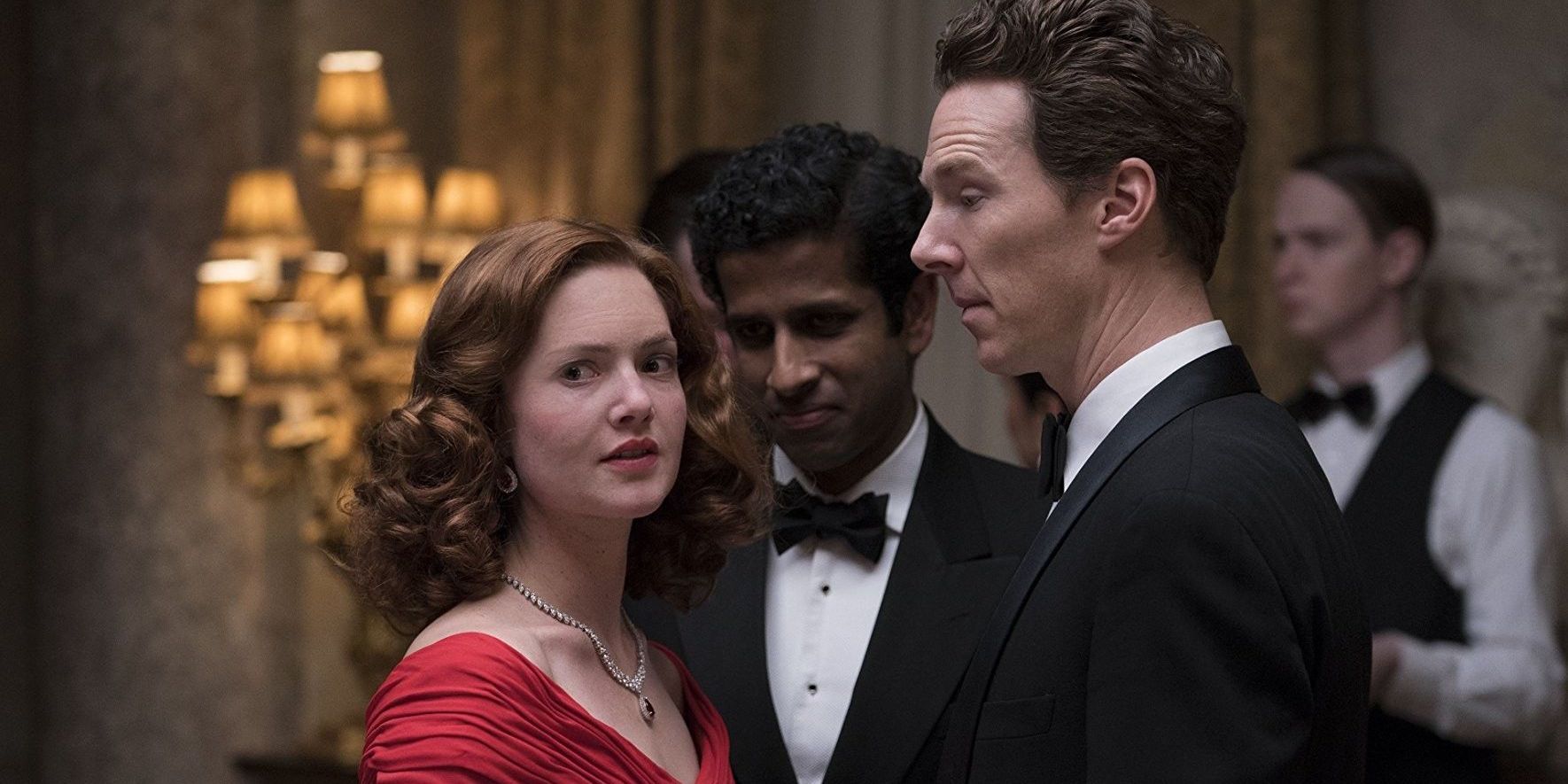It is difficult to look another person in the eye and recommend they watch Patrick Melrose. The show is extraordinary in its writing and performances, but it is also unflinching in its portrayal of extraordinary cruelty—and the tragedy wrought by that cruelty in the lives of innocents. It is also, however, a story of redemption and recovery, with profound insight into the decadence of aristocracy.
As Patrick grapples across two timelines with the trauma of his childhood, members of the British upper class continue to hover at the periphery of his interior struggles—complicit in his trauma, even as they are unaware of it. As much as Patrick Melrose is about Patrick dealing with abuse, it is also an indictment of the system that enabled that abuse in the first place.
Royalty has been a popular subject since the early days of cinema, and shows about royalty have proliferated in the last fifteen years, concurrently with the mainstreaming of cable television. The subgenre is a malleable one: stories can be fine-tuned to suit the tastes of the present moment with a simple twiddling up or down of a few dials—historicity, production, intrigue, and (of course) sex appeal. Starz’s The White Queen told an obscure story from British royal history with an entertaining combination of high historicity and high sex appeal. Reign cultivated a loyal cabal of CW viewers with low historicity and extremely high intrigue (and plenty of romance, as it was still the CW). Netflix’s The Crown has employed a combination of high historicity and high production to earn both immense popularity and unabated critical acclaim.
In fact, The Crown provides an interesting counterpoint to Patrick Melrose, as it, too, is a true story—the producers and writers have been given unprecedented access to Windsor history, and they have attempted to recreate the events of Queen Elizabeth II’s reign with maximum fidelity. If most royal dramas are defined by a combination of the traits listed above, the result is a sort of spectrum of verisimilitude.
While less faithful accounts use the stories of royalty to create pseudo-fantasy, the accounts with high historicity often focus on the humanity of the ruling class, the ordinary struggles that no amount of money and power can eliminate. Patrick Melrose, by contrast, is a story of grotesque inhumanity—of individuals, but also of the institution around which those individuals form their sense of identity.
Based on the semi-autobiographical novels by Edward St. Albyn, the series tells the story of Patrick’s chronic sexual abuse at the hands of his father, and of his subsequent decades-long battle with drug addiction. Episodes jump around between these two narratives, as Patrick struggles to reconcile the trauma of his past through the events of his present, all the while bound to obligations of family, society, and the expectations of aristocracy.
The show begins with the death of Patrick’s father, David Melrose (a brutal and brilliant performance by Hugo Weaving), an aristocrat whose ego outlived both his money and his significance. In the course of the series, however, adult Patrick (played with masterful depth by Benedict Cumberbatch) encounters his father only as a specter of the past; it is through repeated encounters with his father’s peers that he actually confronts and dismantles David Melrose’s overinflated sense of self-importance. Foremost among these peers is Nicholas Pratt (Pip Torrens), David’s close friend and reliable sycophant, who perpetually reappears to keep the caustic spirit of his dead friend alive, mostly through scathing observations about the lower classes.
David Melrose’s cruelty derives from his personal sense of entitlement, but Patrick Melrose explicitly indicts the culture of entitlement that feeds his perspective. Nowhere is this more apparent than in the third episode, when adult Patrick attends a party to which Princess Margaret (Harriet Walter) has also been invited. During the party, the princess displays every characteristic that has already been demonstrated by lesser aristocrats in the show—only magnified.
The epitome of her entitlement is depicted in a truly perverse sequence, in which the French ambassador has accidentally spilled sauce on her dress, and Margaret insists that he wipe away every drop from her lap. For the viewer, there are significantly more painful scenes to watch, but there is none that so succinctly distills the moral decay of the aristocracy as a whole.
Fortunately, the show does not condemn Patrick to the same moral descent; the beauty of Patrick Melrose lies in its story of recovery, which extends to Patrick’s relationship with the class in which he was raised. The superiority of the aristocracy exists only in the minds of its members, and as David finds healing, he comes to see their sense of entitlement for what it is: absurdity. Nicholas Pratt remains, spewing unremitting vitriol, but his griping becomes muted as the world around him changes, until it is little more than out-of-touch droning. In the end, Patrick is not bound to that culture of entitlement, just as he is not bound to either the abuse of his childhood or the addiction it spawned.


